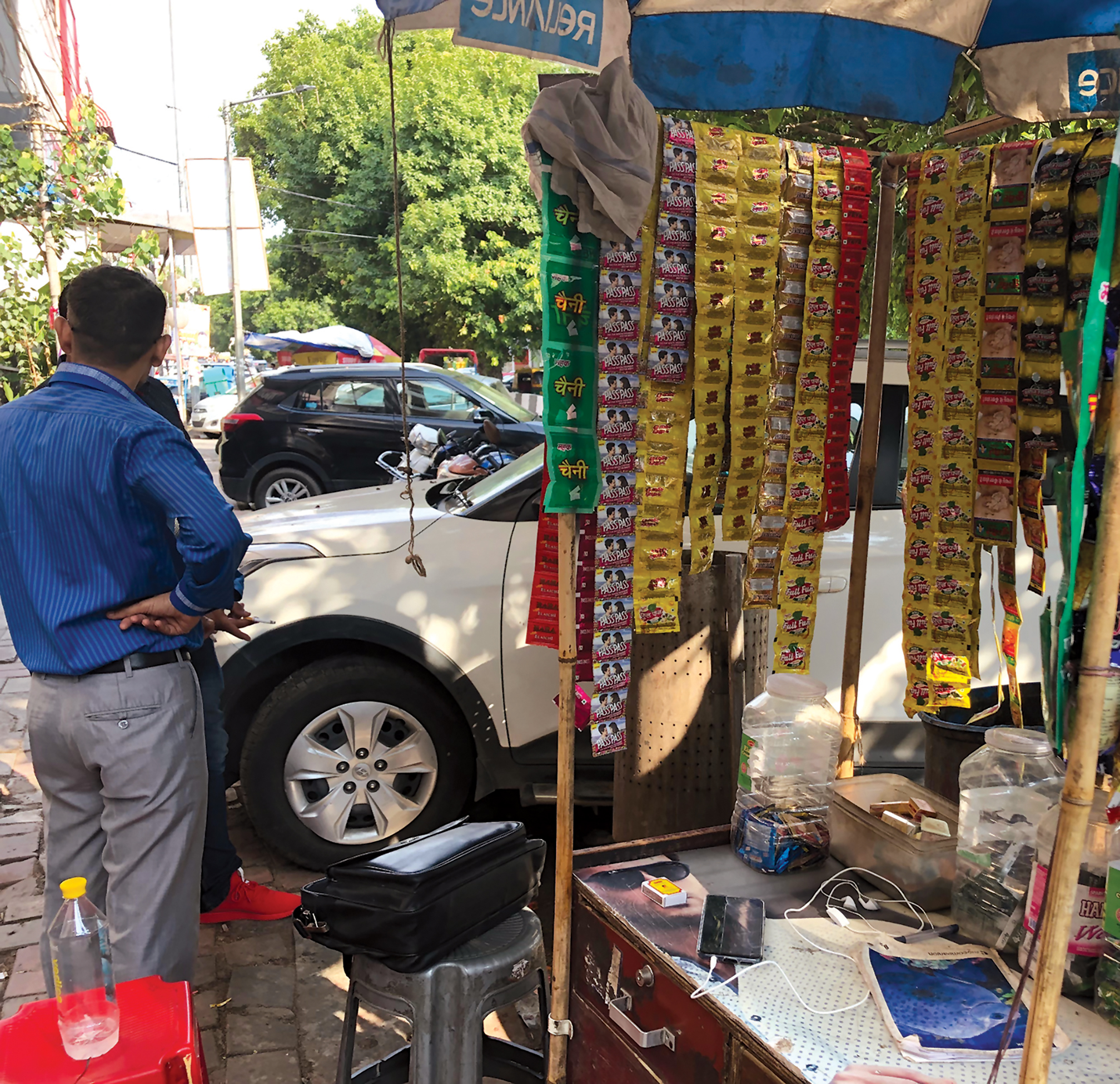Sale of chewable tobacco is banned in Delhi. But neither the vendors nor consumers seem affected by it
Paan stalls near Mayur Vihar Phase 1 Metro Station sell tobacco in every form. When confronted, vendors say they have no idea that gutka, which contains chewable tobacco, is banned by the Delhi government — both its manufacture and sale.
In National Capital Territory of Delhi, the ban on chewable tobacco was extended on May 1, 2019 for a year. A notification was issued even in 2012 on the orders of the Supreme Court. But three months down the line, the ground reality is different.
Anupam Gupta, who hails from UP’s Etawah district, owns a stall in Ashok Nagar market. He says he isn’t aware about any ban imposed by the administration and the chewable tobacco market is flourishing in and around Delhi.
“This is a million-dollar market and there remains no or zero restriction from the government. We are unaware about any ban being imposed as the supply has been continuous,” said Gupta.
On being asked where the supply comes from, Gupta elucidates, “We go and get the tobacco from the wholesale market situated in West Delhi. Because the person who delivers via bicycle mostly sells duplicate maal.”
According to him, “The business of tobacco contributes a lot of tax for the government. If a pouch costs Rs 5 then Rs 2 gets deposited as tax.” But his argument is specious, for nobody could be paying tax on an illegal product. He adds, “Polythene was banned way back by certain state governments but it never got implemented in real terms.” However, here again he is wrong, for in Uttarakhand, for example, the ban on plastic is being strictly implemented.
However, he is correct in saying, “Ganja, afeem and charas (forms of drugs) all are available in the market by hook or crook and so is tobacco. No ban on these items has worked.” The big difference is that the drugs are not sold openly, like gutka is.
Indians have traditionally been consumers of chewable tobacco in addition to smoking cigarettes and bidis. The deadly leaf accounts for about 1 million deaths annually. The harsh fact is that 90% of cancer and 40% of TB cases are directly linked to tobacco use in our country. In addition, 40% of all cancer patients in India and 20-30% of diabetes, hypertension, stroke and heart attack are indirectly associated with tobacco use.
Tobacco leads to an alarmingly high rise in deaths due to mouth and lung cancer. As per a report, there have been about six million deaths worldwide and the numbers are expected to shoot up to eight million by 2030. Yet the ban in the Capital, which is better policed than most other cities, remains on paper.
The notification signed by Food Safety Commissioner LR Garg reads: “Commissioner (Food Safety), National Capital Territory of Delhi, prohibits in the interest of public health for a period of one year in NCT the manufacture, storage, distribution, or sale of tobacco which is either flavoured, scented or mixed with any of the said additives, and whether going by the name or form of gutka, pan masala, flavoured/scented tobacco, kharra.”
As per a report, India bears a loss of more than Rs 100 billion annually due to tobacco habits of its citizens. Being a gateway for all kinds of drug abuse, tobacco has become hazardous to society’s health. Companies earn their profit but the common man’s addiction destroys his/her life including the family and the environment.
There is a larger issue here. Is chewable tobacco a food item? The Delhi government had in the past suggested the Centre revise the labeling of raw chewable tobacco like khaini. A letter by the AAP-led administration reads: “Provision to section 3(j) of the Food Safety and Standards Act, 2006 clearly states that the central government may declare, by notification in the official gazette, any article as food regarding its use, nature, substance or quality.
“If we can modify the definition of food by saying that ‘any substance which is put inside mouth for the purpose of consumption fully or partially, by methods like chewing, sucking or any other as practised, it may be labeled as food item’. Thereby, tobacco will become a food article.”
Vendors are scornful of such classifications — and of bans. At Chandan tea stall in Lajpat Nagar, Ashutosh, who hails from Bihar’s Darbhanga district says, no one bothers whether tobacco causes cancer or any other disease: Consumers purchase it for self-satisfaction and all these warnings are mere props. “People continue to buy gutka even with warnings printed on the packet. They consume it knowing all the hazards. It has become their life’s reality.”
About the ban, Ashutosh, says he hardly remembers any restrictions other than one imposed during May 2019, when it became quite tough to sell gutka in public. But “Tobacco was still being sold quite freely in an under-the-table manner and after one month, our stalls were back and the business again started.”
A young consumer of chewable tobacco, who does not wish to be named, says for him it has become a daily need. “Like food is a necessity, so is gutka.”
Asking for a packet of Dilbag, he says, “Consuming gutka does lead to problems; our teeth, mouth get affected but it has become a habit. Ab dil nahi manta (It’s hard to resist).”
With other more populist items on its agenda during the run-up to the 2020 Assembly elections, will the Delhi government have time to stop the silent self-poisoning of voters?





